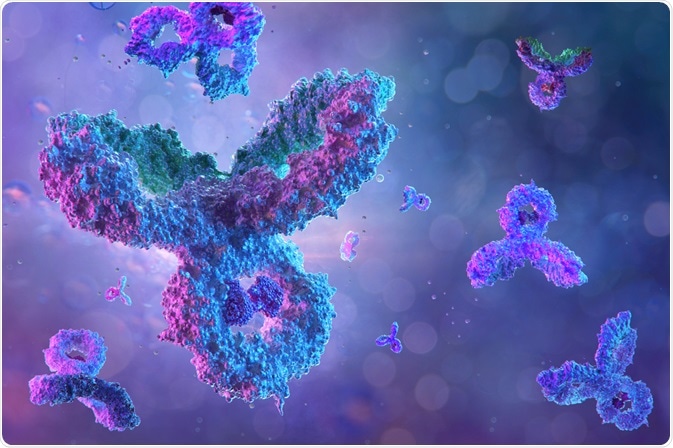Adequate sleep is vital for good health; unfortunately, not many people relate to this feeling. Amidst the growing workload and late-night culture, the importance of proper sleep is often side-lined. This issue is much relevant in the current pandemic when people are working from home.
 Image Credit: werachai naknual / Shutterstock.com
Image Credit: werachai naknual / Shutterstock.com
Insomnia and its consequences
Insomnia is a condition in which a person is unable to fall asleep. A person with insomnia may present with the following symptoms:
- Feels sleepy and tired throughout the day
- Is always irritated
- Have problems in focussing on one thing and memorizing stuff
Lack of sleep in the long term may increase the risk of obesity, diabetes, and cardiovascular diseases. Sleep is also vital for a proper immune response; lack of sleep can weaken your immune system; it can increase the body's susceptibility to infection and hamper the ability to fight the illness.
Lack of sleep and immunity
The sleeping and feeding habits of all the animals, including humans, are governed by the circadian rhythm. The word circadian is taken from the Latin word "circa," which means day and "diem" means around. Circadian rhythm is a natural process that controls the sleep-wake cycle. The sleep-wake cycle is determined by complex interactions between the central nervous system, endocrine system, and the immune system.
During sleep, your body releases cytokines, which are essential for the regulation of the immune system. Cytokines are required in increased amounts when you are attacked by a pathogen or are under stress. The level of cytokines increase during sleep, and therefore lack of sleep hinders the body's ability to fight infections. This is also a reason why the body tends to sleep more while suffering from any infection.
According to the National Sleep Foundation, chronic sleep loss poses a potential risk to the immune system. In a study conducted by Ackermann et al., researchers compared white blood cell counts of 15 subjects under normal and severely sleep-deprived conditions.
In the first part of the study, 15 participants followed a strict 8-hour sleep schedule for a week. During the study period, they were exposed to 15 minutes of sunlight within 1 ½ hour of waking up and made to refrain from caffeine, alcohol, or medication during the last three days, to normalize their circadian cycle.
In the second part of the study, participants were subjected to 29 hours of continuous wakefulness period. After study completion, the white blood cell counts of the participants were compared, and it was found that a type of white blood cells known as granulocytes reacted to the sleep deprivation in a typical way of body's stress response, that too particularly at night.
What is the optimal amount of sleep?
The National Sleep Foundation recommends the following sleep ranges:
- Newborns (0-3 months): 14-17 hours
- Infants (4-11 months): 12-15 hours
- Toddlers (1-2 years): 11-14 hours
- Preschoolers (3-5 years): 10-13 hours
- School-age children (6-13 years): 9-11 hours
- Teenagers (14-17 years): 8-10 hours
- Younger adults (18-25 years): 7-9 hours
- Adults (26-64 years): 7-9 hours
- Older adults (65years and above): 7-8 hours
The above numbers reflect the ideal amount of sleep in normal circumstances; however, there are certain cases when people need more sleep, for example, while recovering from illness, jet lag, radical time zone shift, etc.
 Image Credit: Corona Borealis Studio / Shutterstock.com
Image Credit: Corona Borealis Studio / Shutterstock.com
Can good sleep improve immunity?
Poor quality sleep can deteriorate immune response; however, a good night's sleep can increase your immunity. Good quality sleep helps improve the efficiency of T helper cells. T helper cells are the cells that fight invading bacteria, viruses, or any foreign antigen cells as part of the body's defense system.
Whenever a foreign pathogen enters the body, our immunity cells recognize them and release a protein called integrin. Integrin helps T cells to bind with the foreign antigens and ultimately destroy it.
According to a study published in the Journal of experimental medicine, T cells activate integrins and also identify the factors that can compromise the efficiency of T cells in attaching to the target pathogen.
It was found that hormones like adrenaline, noradrenaline, and pro-inflammatory molecules like prostaglandins interrupted T cells from combining with integrins. The level of these stress hormones (adrenaline, noradrenaline) and prostaglandins decreases during sleep. Hence, good sleep boosts the efficiency of T cells and improves the immune response of the body.
The benefits of good sleep are well established. Good sleep must be a priority in every person's life. Maintaining sleep hygiene, like sleeping in a comfortable and dark, cold environment, and eliminating electronics at night can help achieve good sleep. Regular exercising and avoiding alcohol and caffeine are also vital in improving sleep quality.
Sources
Irwin, M. R., (2017). Sleep Health: Reciprocal Regulation of Sleep and Innate Immunity. Neuropsychopharmacology : official publication of the American College of Neuropsychopharmacology, 42(1), 129–155. https://doi.org/10.1038/npp.2016.148
Reis, E. S., et al. (2011). Sleep and circadian rhythm regulate circulating complement factors and immunoregulatory properties of C5a. Brain, behavior, and immunity, 25(7), 1416–1426. https://doi.org/10.1016/j.bbi.2011.04.011
National Sleep Foundation Recommends New Sleep Times. National Sleep Foundation. Available at: www.sleepfoundation.org/.../national-sleep-foundation-recommends-new-sleep-times
Sleep deprivation effect on the immune system mirrors physical stress. Available at: www.sleepfoundation.org/.../
Dimitrov, S., et al. (2019). Gαs-coupled receptor signaling and sleep regulate integrin activation of human antigen-specific T cells. The Journal of experimental medicine, 216(3), 517–526. https://doi.org/10.1084/jem.20181169
Ackermann, K., Revell, V. L., Lao, O., Rombouts, E. J., Skene, D. J., & Kayser, M. (2012). Diurnal rhythms in blood cell populations and the effect of acute sleep deprivation in healthy young men. Sleep, 35(7), 933–940. https://doi.org/10.5665/sleep.1954
Further Reading
Last Updated: Jan 11, 2021